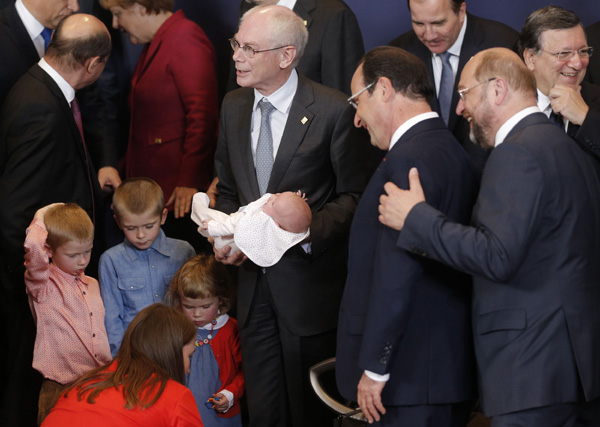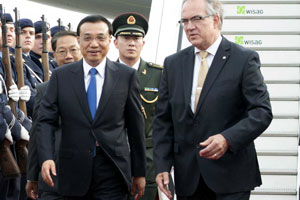EU reaches deal to cut greenhouse gas emissions
(Agencies) Updated: 2014-10-24 10:02
 |
|
Outgoing European Council President Herman Van Rompuy (C) poses for a family photo with relatives and European leaders during an EU summit in Brussels October 23, 2014. [Photo/Agencies] |
But environmental activists said it fell short of what the 28-nation bloc should have done.
Joris den Blanken of Greenpeace called it a "very modest" package. "It will mean a slowdown in clean energy development in Europe," he said.
The pact came after strong opposition from Poland and other poorer eastern European nations fund the necessary changes.
Poland had argued that pace of change was too fast for Eastern European countries that are trying to grow their economies as they restructure old, energy-dependent industries.
Almost 90 percent of Poland's electricity comes from coal. The nation intends to continue that way for decades because mining creates 100,000 direct jobs and many thousands more in related sectors. Warsaw argues that green energy, large wind farms and solar panels still create energy that is too expensive.
Van Rompuy said poorer EU member states would get help reaching the targets.
He pledged "extra support for lower-income countries, both through adequate targets and through additional funds to help them catch up in their clean-energy transition."










